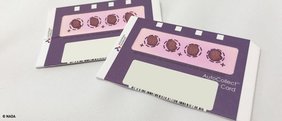
Since this past weekend the National Anti Doping Agency of Germany (NADA Germany) is using the Dried Blood Spot (DBS) method in addition to classical blood and urine tests as part of its testing programme. The DBS samples are taken by trained medical personnel to collect blood samples. The objective is to establish the minimally invasive type of sampling in NADA Gernany‘s testing programme. The Institute for Biochemistry at the German Sport University Cologne offers a wide range of highly specific analysis options in this context.
NADA Germany views the DBS test as an important development of the testing programme and its use as a complementary option to classical doping controls as a beneficial addition. Since September 1st, the use of the DBS test in the context of doping controls has been anchored in the new technical document "Dried Blood Spot (DBS) for Doping Control" of the World Anti-Doping Agency (WADA) and is possible at any time. The results of the DBS samples are now litigable.
NADA Germany already has several years of experience with DBS controls. Thanks to funding from the Federal Ministry of the Interior, Building and Community (BMI), three research projects were carried out in cooperation with the Institute of Biochemistry at the German Sport University Cologne since 2015, which examined the use of DBS technology. In the first project, the use of the method as a preventive measure was tested for the first time. In a follow-up project, NADA Germany examined the use of the DBS test as an additional method for taking samples in competition. In 2020, NADA Germany, together with the German Sport University Cologne, researched the possibility of using the DBS test in a remote testing procedure during the first lockdown of the COVID-19 pandemic in Germany. As part of the three projects, NADA Germany collected a total of 199 DBS samples from 199 athletes who had voluntarily participated in the further development of the testing programme.
NADA Germany continues innovative research projects in this area to develop the future testing programme.